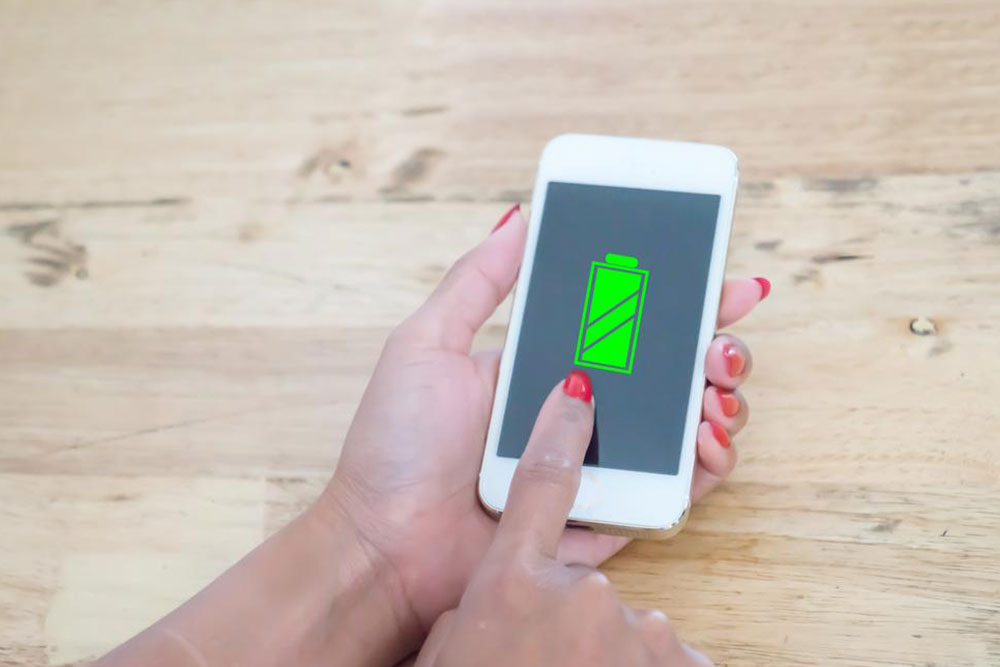Comprehensive Guide to Choosing the Best Mobile Phone Batteries for Optimal Performance
This comprehensive guide covers key aspects of choosing the best mobile phone batteries, including capacity, chemistry, processor efficiency, and fast charging technology. Learn how to select a battery that enhances performance, safety, and longevity. Essential tips help you make informed decisions whether upgrading or buying a new device, ensuring longer battery life and improved user experience.

Comprehensive Guide to Choosing the Best Mobile Phone Batteries for Optimal Performance
In today's fast-paced world, smartphones have become an indispensable part of our daily lives. From communication and entertainment to productivity and navigation, our devices are constantly in use. However, a common frustration shared by many mobile users is inadequate battery life—devices running out of charge quickly and disrupting daily routines. This issue has driven consumers and manufacturers alike to focus heavily on battery technology, capacity, and efficiency. Understanding how to select the most suitable battery for your smartphone can significantly enhance your device’s performance, reliability, and lifespan.
Choosing the right battery for your mobile device involves a detailed understanding of several key factors. These elements influence not just how long your phone lasts between charges but also its overall health, safety, and user experience. Here, we will explore each factor in-depth to help you make an informed decision tailored to your specific needs, usage patterns, and budget.
Understanding Battery Capacity
Battery capacity is one of the most recognized metrics when evaluating a mobile phone’s endurance. Measured in milliampere-hours (mAh), capacity indicates the amount of charge a battery can store, directly impacting how long the device can operate on a single charge. For example, a phone with a 4000mAh battery can generally last longer than one with a 3000mAh battery under similar conditions.
Higher capacity batteries have become more common as consumers prioritize longer usage times, especially with the increasing demand for multimedia streaming, gaming, and multitasking. However, a larger battery also adds weight and size to the device, which might affect portability and design. Interestingly, some brands like Apple have optimized their devices to deliver impressive battery life despite modest capacities, primarily through software efficiency and hardware optimization. This highlights that capacity is crucial but not the sole determinant of battery performance.
Battery Chemistry and Technology
The chemistry behind a battery significantly influences its performance, safety, and longevity. Most modern mobile devices utilize lithium-ion (Li-ion) batteries due to their high energy density, stability, and ability to withstand many charge cycles without significant capacity loss.
When selecting a battery or a device, verify that it uses lithium-ion chemistry, as older technologies such as nickel-cadmium (NiCd) or nickel-metal hydride (NiMH) are less efficient, have lower capacities, and are prone to memory effects and higher self-discharge rates. Lithium-ion batteries also include built-in protection circuits that prevent overheating, overcharging, and short circuits, reducing risks of damage or safety hazards.
The evolution of battery chemistry, including advancements towards lithium-polymer variants, continues to enhance safety profiles, shape charging speeds, and improve overall longevity. Staying informed about the latest technological developments can help consumers choose batteries that are safer, more efficient, and longer-lasting.
Processor Efficiency and Its Impact on Battery Life
The overall efficiency of your smartphone’s processor—and indeed its entire hardware ecosystem—plays a crucial role in battery consumption. Even with high-capacity batteries, phones with inefficient or power-hungry processors can drain power rapidly, leading to shorter usage times.
For instance, modern processors such as Qualcomm Snapdragon, Apple A-series chips, and MediaTek Dimensity series are designed with energy efficiency in mind, incorporating advanced manufacturing processes like 7nm or 5nm technology. These chips perform high-speed computations while consuming less power, thus significantly extending battery life.
Device optimization includes not just the processor but also software management, background app control, and system updates that work together to conserve power. For example, phones like the Redmi Note 5 Pro outperform older models such as Redmi Note 4 despite similar battery capacities, thanks to more efficient chipsets and better system management. This synergy of hardware and software optimization is vital for maximizing battery longevity.
Fast Charging and Power Replenishment Technologies
In our increasingly busy lives, the ability to quickly recharge your device can make a significant difference. Fast charging technologies—such as Qualcomm Quick Charge, USB Power Delivery (USB PD), and proprietary solutions like OPPO's VOOC or OnePlus' Warp Charge—enable rapid energy replenishment, often restoring 50% or more of the battery in just 15-30 minutes.
Fast charging not only saves time but can also reduce battery wear if used properly, as prolonged charging at low speeds can generate more stress on the battery over time. Many newer smartphones include optimized fast-charging algorithms that balance speed with battery health, extending the overall lifespan of the battery.
When choosing a new device or replacement battery, consider compatibility with these fast-charging standards, as well as the availability of suitable chargers. Using certified chargers is crucial for safety and to ensure you receive the intended charging speed, preventing potential damage or safety hazards.
Additional Considerations for Selecting the Right Battery
Beyond these primary factors, several other considerations can influence your choice:
Brand Reliability: Opt for batteries from trusted manufacturers known for quality control and safety standards.
Device Compatibility: Always ensure the battery is compatible with your specific device model to avoid fitting issues or performance problems.
Environmental and Safety Standards: Look for batteries that adhere to safety certifications like CE, UL, or UN38.3, which verify they meet rigorous safety and environmental guidelines.
Cost and Warranty: Balance your budget with the warranty offered; a higher upfront cost may be justified by better lifespan and safety assurances.
In conclusion, selecting the optimal battery for your mobile phone involves a nuanced understanding of capacity, chemistry, processor efficiency, charging capabilities, and trustworthy brand sources. Investing time in understanding these factors ensures you choose a battery that meets your needs, enhances device performance, and extends the overall lifespan of your smartphone. Whether upgrading your current device or purchasing a new one, informed decision-making can lead to a more satisfying, reliable mobile experience.





